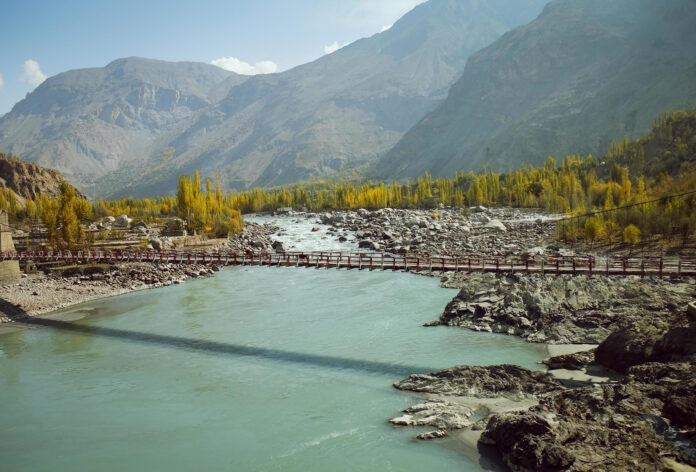
India’s unilateral suspension of the Indus Waters Treaty (IWT) following the tragic attack in Pahalgam represents not just a violation of international legal norms but a dangerous precedent in the weaponization of water diplomacy. The move, ostensibly in retaliation to what India claims is a cross-border terror incident, is both legally untenable and strategically reckless. It undermines one of the most resilient bilateral agreements in South Asia and signals a broader erosion of treaty-based normative behavior—a cornerstone of regional stability.
The IWT, signed in 1960 under the auspices of the World Bank, is a rare and enduring example of functional cooperation between India and Pakistan. It has survived wars, crises, and decades of hostility, largely because it is anchored in technical governance, mutual interest, and internationally monitored dispute resolution mechanisms. Its design is depoliticized by intent, specifically to shield vital water resources from the volatility of India-Pakistan politics. India’s move to hold the treaty “in abeyance,” therefore, marks a strategic rupture in long-standing water diplomacy.
To begin with, India’s decision contravenes the core legal architecture of the treaty. Article XII(3) of the IWT clearly stipulates that “the provisions of this Treaty shall continue in force until terminated by a duly ratified treaty concluded for that purpose between the two governments.” In simpler terms, no party can unilaterally suspend or terminate the treaty. Doing so not only undermines the bilateral commitment enshrined in the IWT but also violates established principles of international treaty law, particularly those articulated in the Vienna Convention on the Law of Treaties, which stress pacta sunt servanda—the obligation of parties to honor their agreements.
Historically, India has threatened to review the IWT during periods of heightened tension—such as in the aftermath of the Pulwama attack in 2019—but it has never crossed the Rubicon. This time, in the wake of the unverified Pahalgam attack, it has done exactly that. Notably, the Indian government has provided no conclusive evidence linking Pakistan to the incident. Its own police and local intelligence agencies have not officially named any cross-border outfit, and social media outrage has far outpaced official investigations. The group purportedly claiming responsibility—the so-called ‘The Resistance Front’—remains shrouded in ambiguity, with no internationally verified links to Pakistan.
This context raises legitimate questions about the credibility of the narrative. Several analysts and former Pakistani officials have termed the Pahalgam incident a “false flag operation”, recalling similar episodes in the past—such as the Chittisinghpura massacre ahead of President Clinton’s visit in 2000, which remains mired in controversy. If this interpretation holds weight, India’s invocation of punitive measures against Pakistan becomes even more problematic. It suggests a pattern of using crisis-induced securitization to justify extralegal and unilateral actions in international relations.
But perhaps most troubling is the weaponization of water—an essential, apolitical resource—under the guise of national security. By doing so, India risks humanitarian fallout, particularly for vulnerable populations in downstream regions of Pakistan. Provinces like Punjab and Sindh, heavily reliant on Indus waters for agriculture, could suffer devastating consequences. Weaponizing shared water resources transforms a technical dispute into a survival issue, and such escalation violates not only treaty obligations but the moral imperatives of responsible regional behavior.
Moreover, the procedural violation cannot be overlooked. The IWT contains a well-defined dispute resolution framework involving the Permanent Indus Commission, Neutral Experts, and ultimately the Court of Arbitration. India’s bypassing of these mechanisms represents norm erosion in global water governance. Internationally, this move calls for serious scrutiny. The World Bank, as a guarantor of the IWT, has a responsibility to hold India accountable for violating its terms. Global actors, especially those advocating rules-based order, must not selectively overlook treaty violations when they occur in South Asia. Selective silence will embolden norm violations elsewhere.
For Pakistan, the path forward must be measured but firm. Islamabad has rightly condemned the attack and expressed its condolences to the victims. It has also categorically rejected allegations of involvement and reiterated its own sacrifices in the fight against terrorism. Pakistan should now initiate formal proceedings under the IWT’s dispute resolution mechanism while also mobilizing international legal and diplomatic forums to bring global attention to India’s breach.
In conclusion, India’s suspension of the Indus Waters Treaty—without evidence, without due process, and under the shadow of a questionable security narrative—is a blatant act of treaty subversion and norm erosion. It endangers not just the future of India-Pakistan water cooperation, but the integrity of international legal commitments in an increasingly fragile global order. The international community must take note: if water becomes a weapon, peace will become a casualty.
